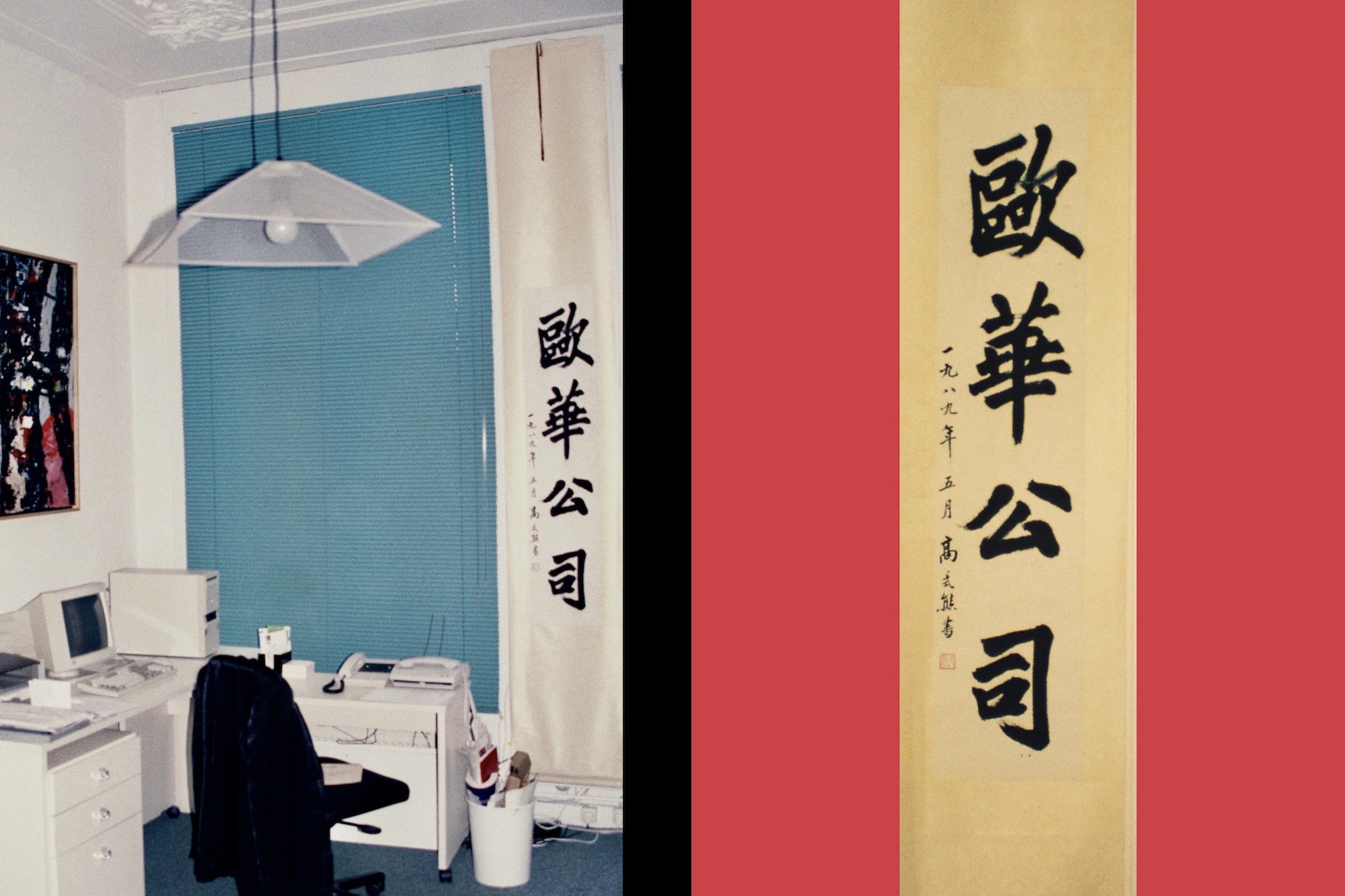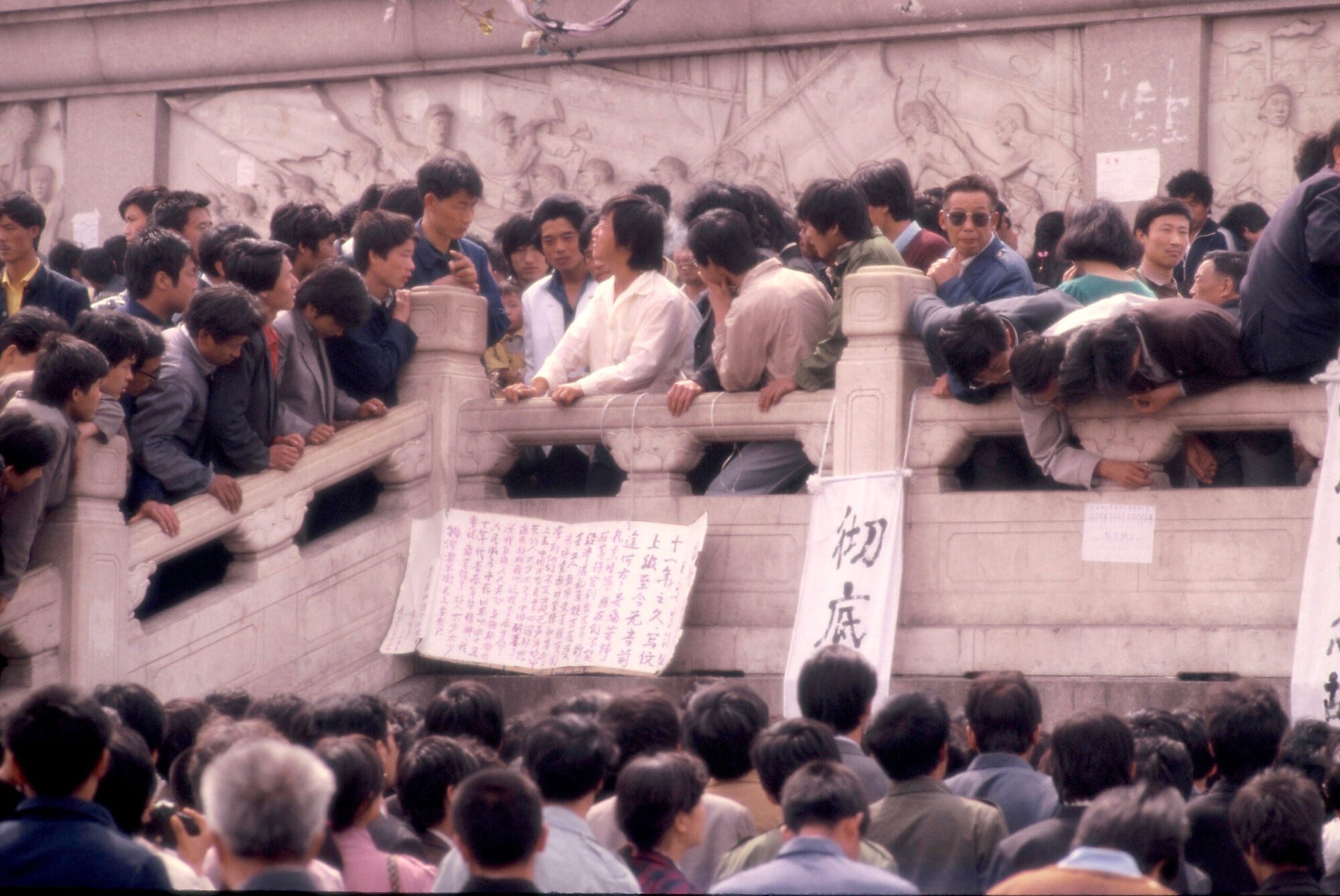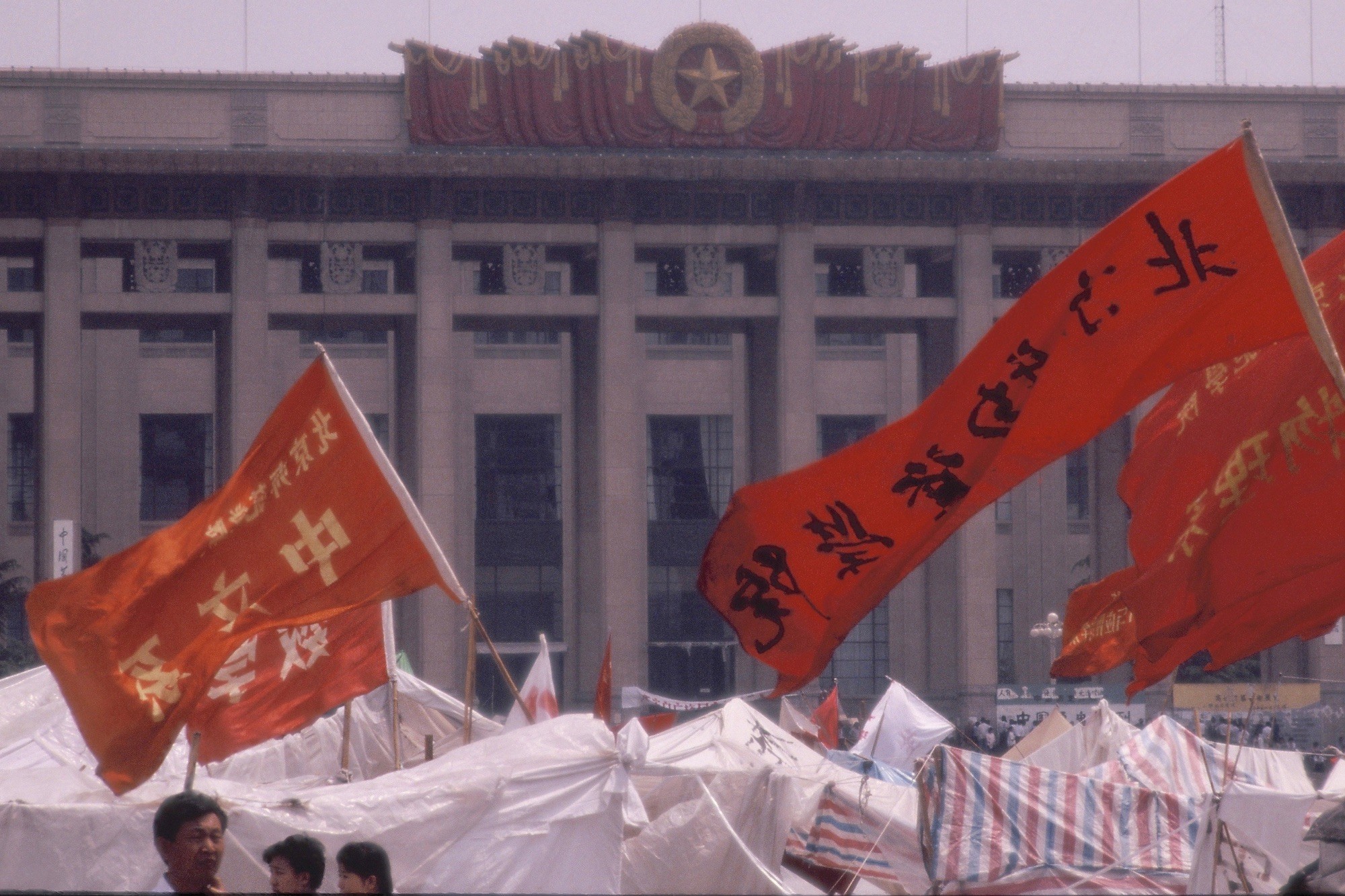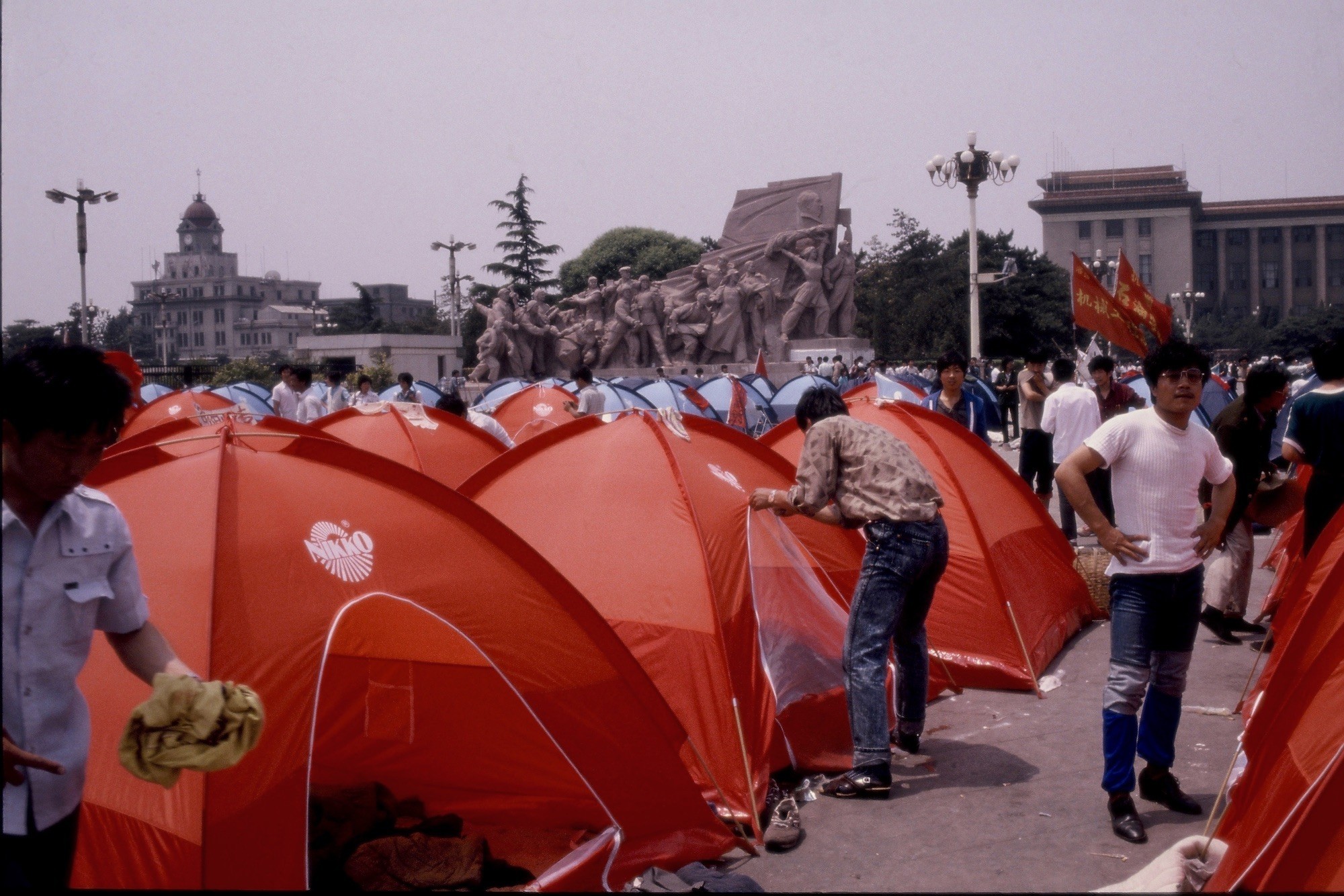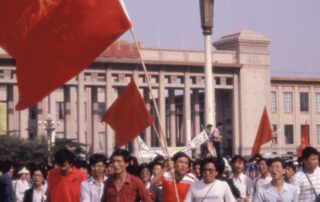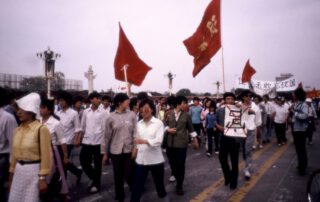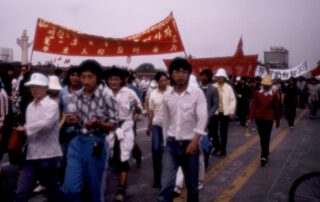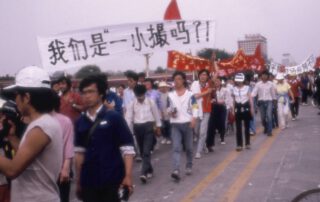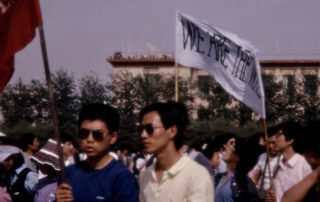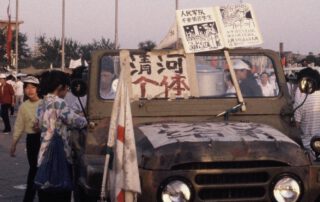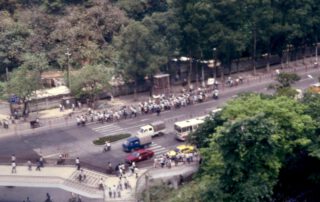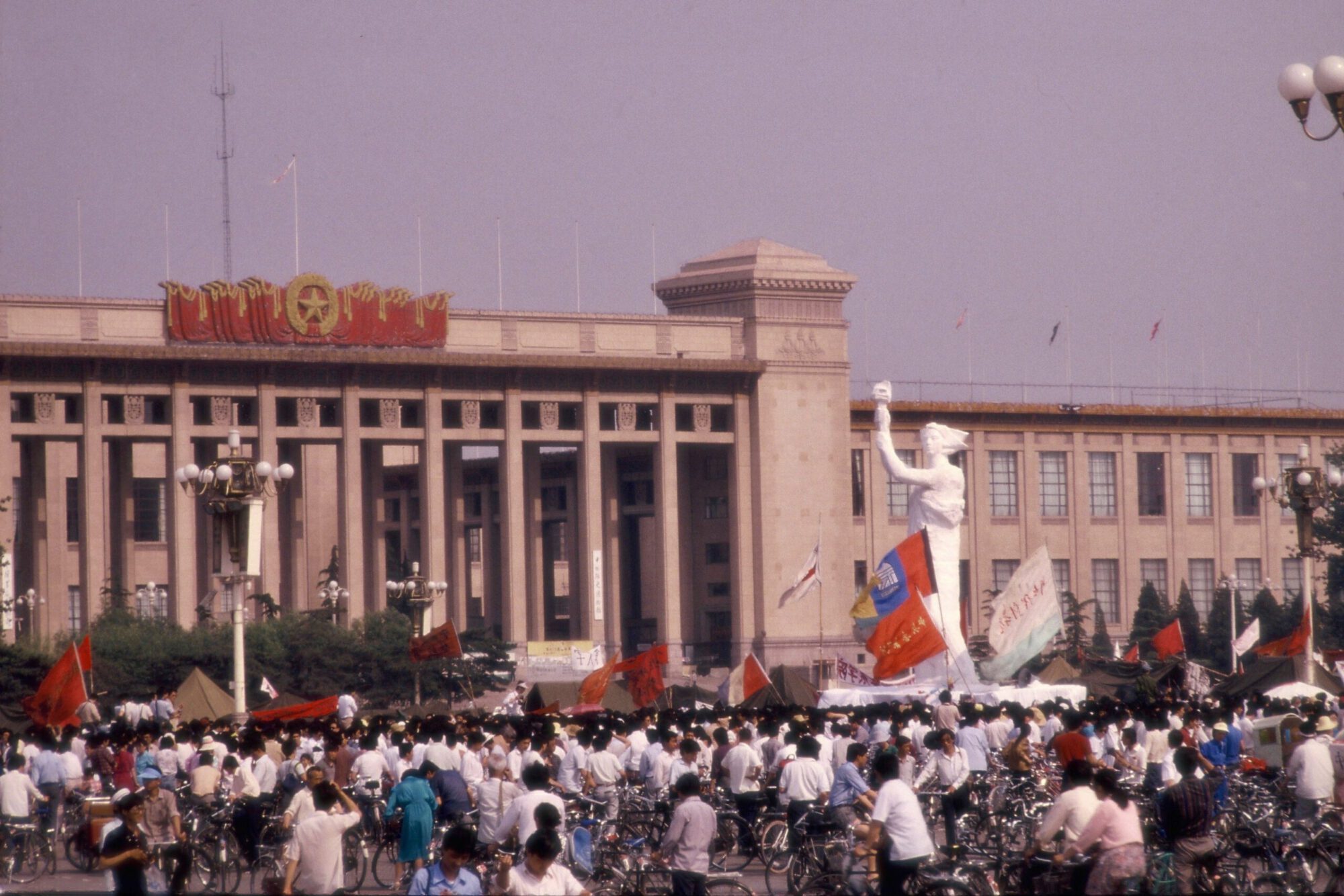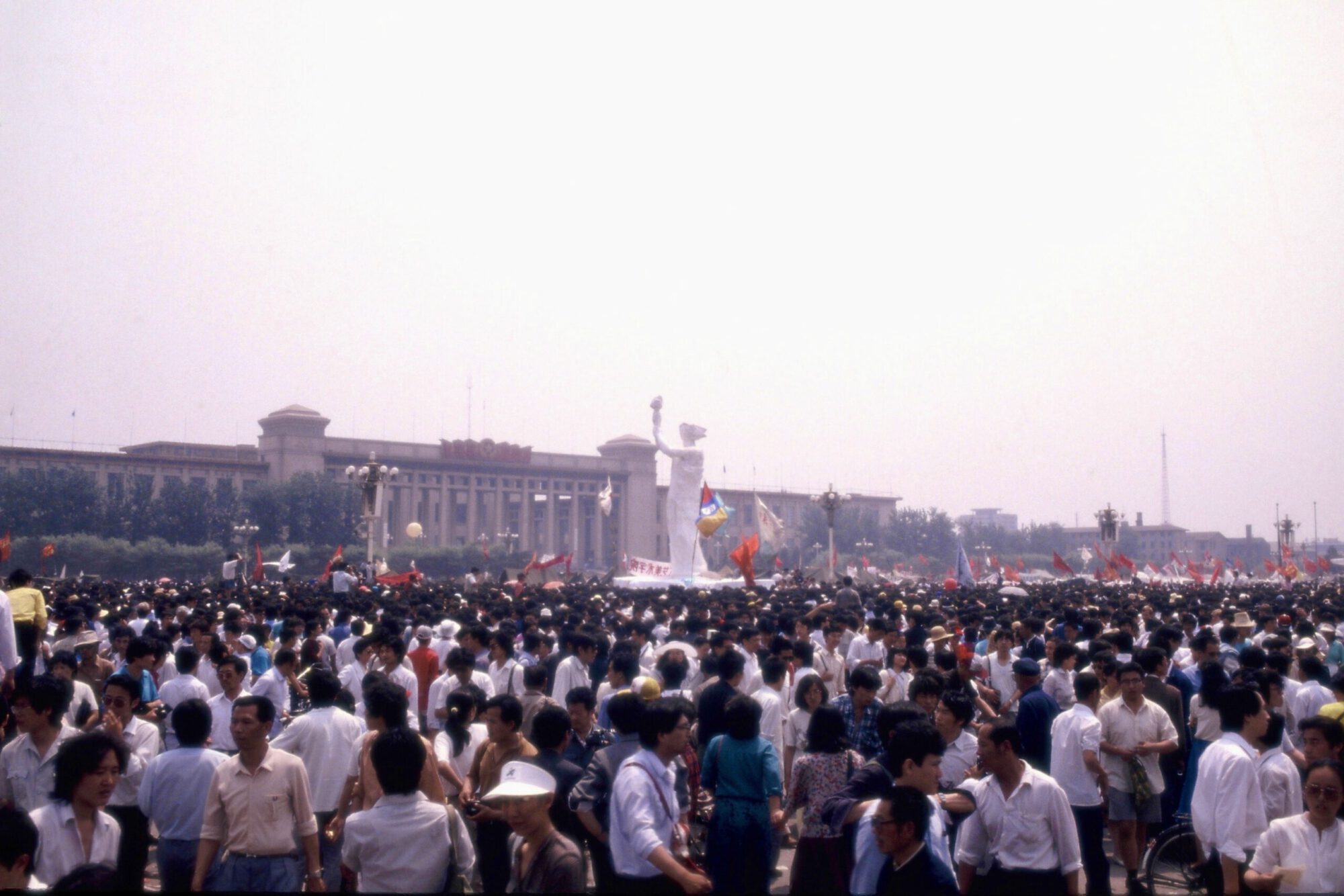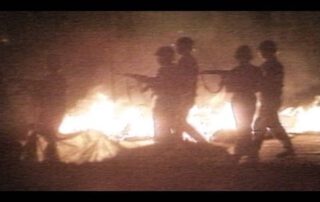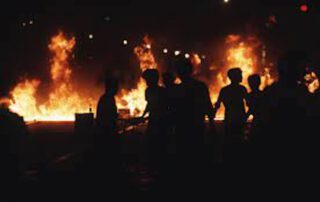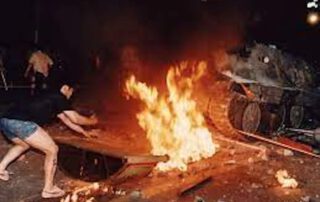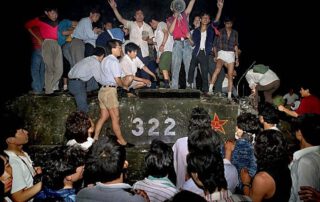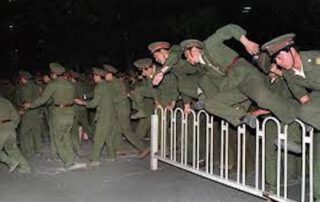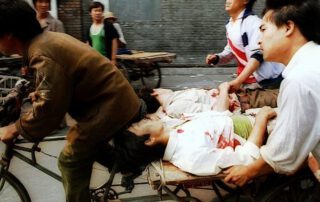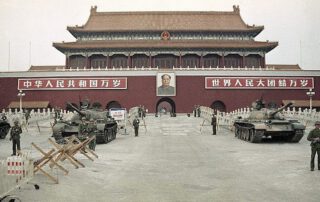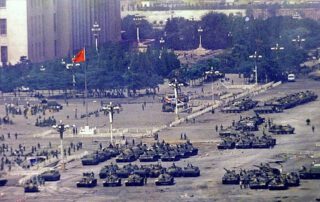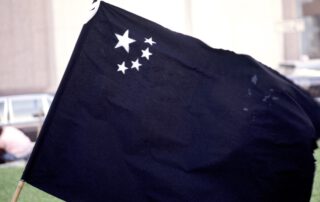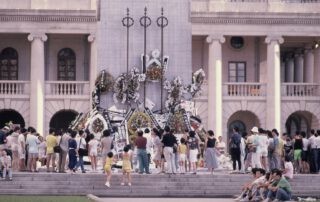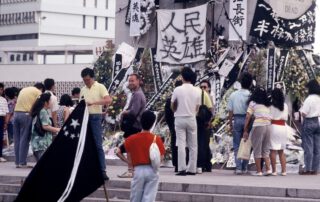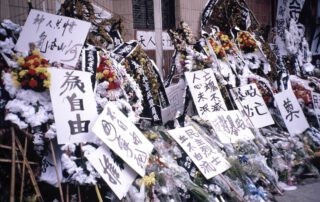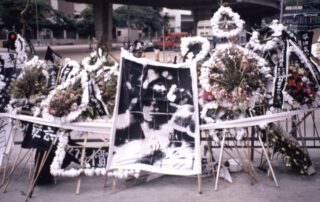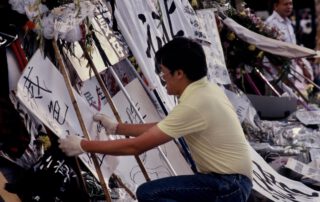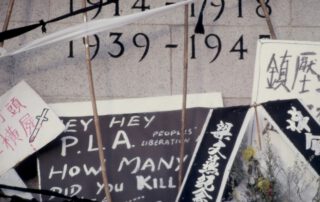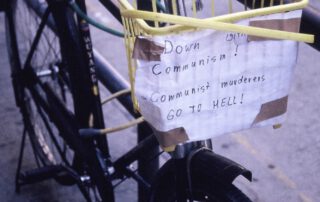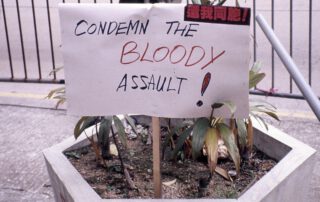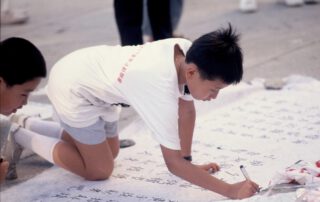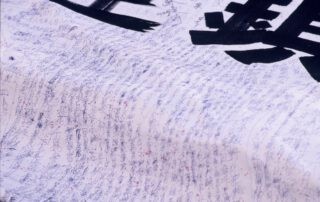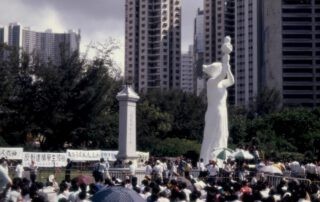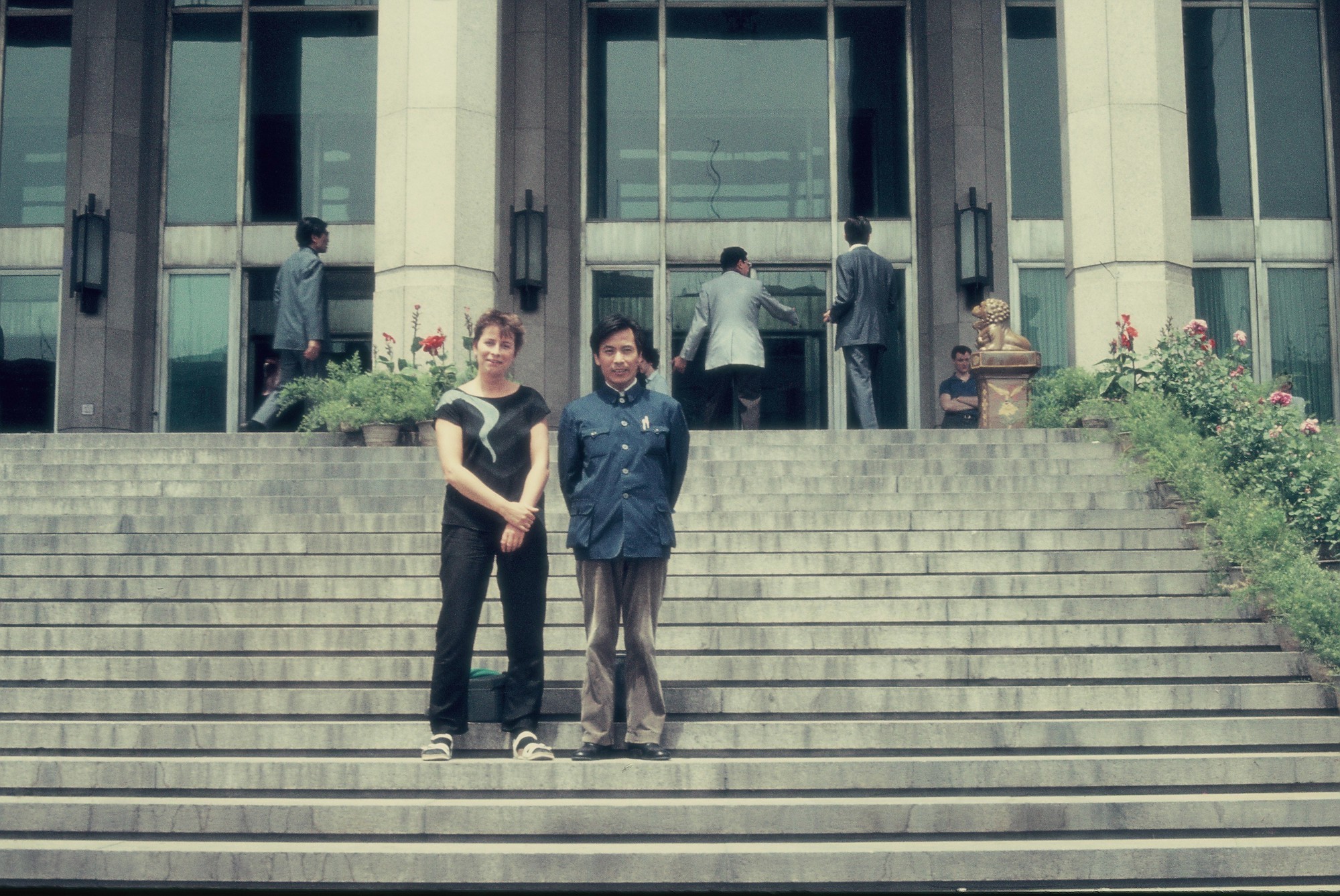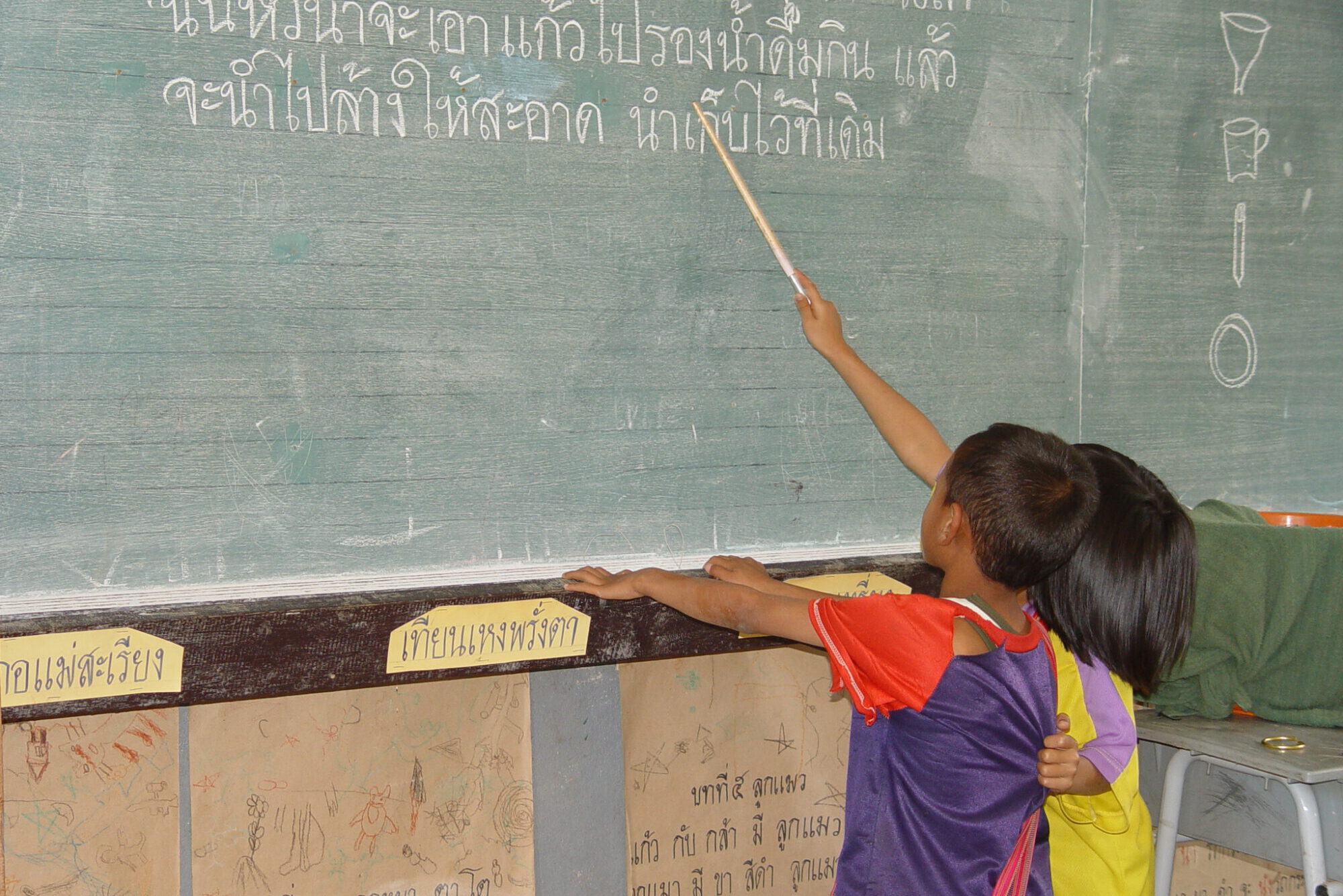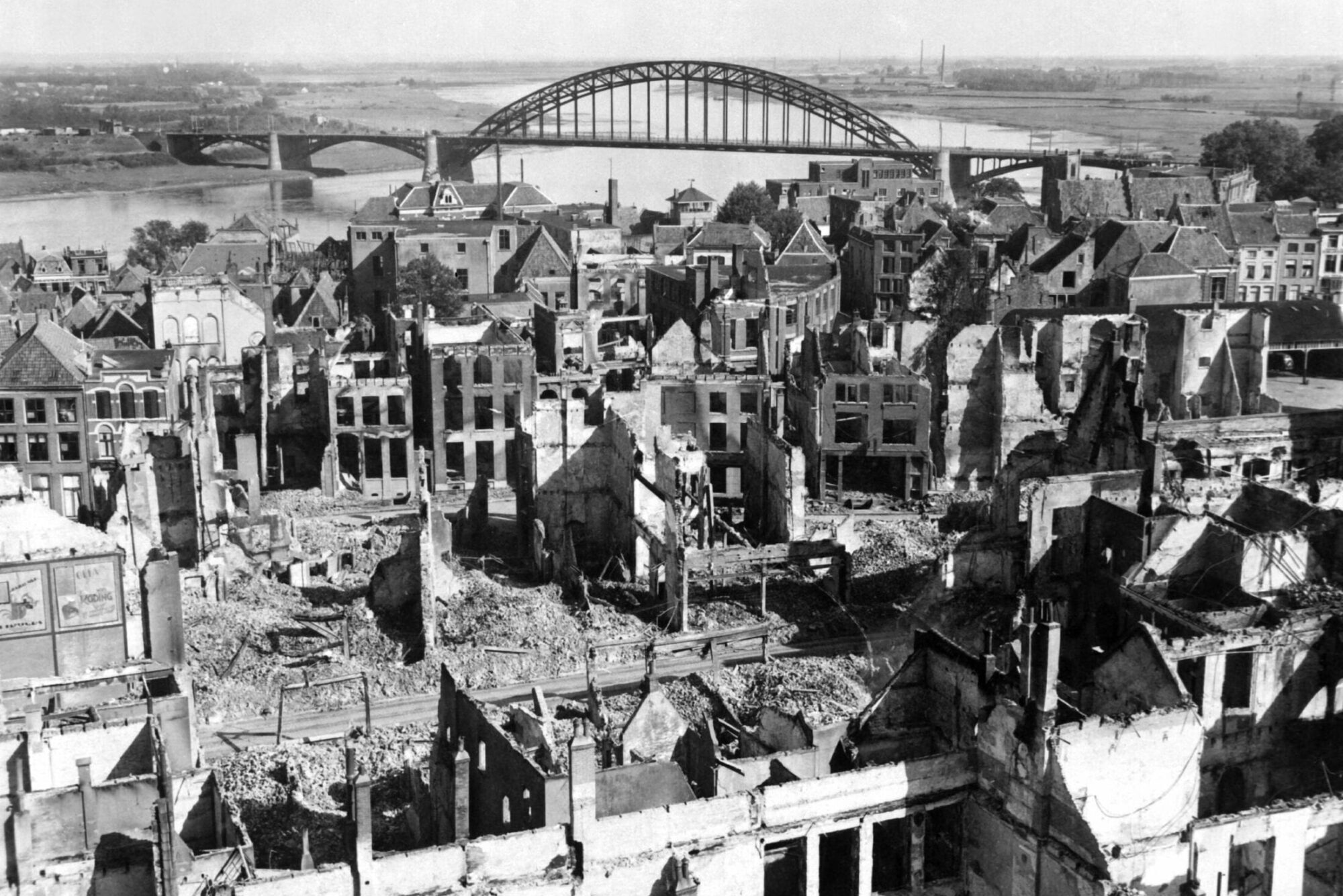A Personal Account
In the spring of 1989, I witnessed the rise of the movement for greater democracy in China and eventually its crushing, cynically, at Tiananmen Square, which means Square of Heavenly Peace, in Beijing on June 4. See map. I hereby tell about my personal experiences and memories of those three important months in the history of China.
In 1988 I had set up my own company: Euro China Projects, “Ouhua Gongse”. Since 1975 I had quite a few contacts in a China closed to foreign companies, organizations and tourists. I was in China in April, May and June 1989 for my company.
I arrived on April 20, 5 days after the sudden death of the recently deposed Secretary General Hu Yaobang of the Communist Party. For conservatives in government, he handled student demonstrations too gently and his will for reform posed a threat. That day I got caught up in a demonstration by a hundred thousand students in the heart of Beijing.
Manus my partner arrived the 27th of May in China. The idea was that we should start our holiday in the West of China the 4th of June, which became an impossibility.
Student Protest at Hu Yaobang’s Funeral
In the weeks that followed, I regularly came to a stop on my bike in huge demonstrations. First, the Tiananmen Square was closed to the demonstrators by the police. But the students took over the square. First through mass demonstrations, then the students occupied the square with self-made tents made of tarpaulin and cloth. Unheard of for China. I came there every day. The students said they were against the power of the Communist Party, against how they were portrayed in the Chinese press as rioters, they wanted more democracy and more freedom.
They were naive and inexperienced but very politically aware. Because their demands for more democracy were not met, thousands of students started a hunger strike by May. Tiananmen turned into an infirmary and became also a stinking garbage belt. Ambulances came and went. The people of Beijing came to the square to bring them water after their working day. After a May storm put an end to the weak canvas and tarpaulin structures, the square turned into a red-colored tent camp. A donation from Hong Kong. Police tried to keep the demonstrations, that continued, from the square. I was sometimes in the middle of it. Scary at times because of the crowds of people but it wasn’t violent. Everything went smoothly. Serious action by the government was not taken and that gave everyone hope.
Students Occupied Tienanmen Square
In the meantime, I found myself not only in Beijing but also in South China, in Shanghai and in smaller cities for work. There were demonstrations everywhere. The call for more democracy in China was shared by a large part of the population in China. In Guangzhou I got stuck in a huge demonstration. The police counteracted by pushing the crowd back. Student leaders helped me to get out of the demonstration. I wasn’t consciously looking for it. But avoiding it became almost impossible. Everyone demonstrated or supported the protesters. Loud applause and V-signs were made from the balconies of flats as the demonstration passed. Demonstrating was no longer an anonymous affair. Everyone came out for where they belong or where they worked. For example, groups of protesters marched along with a banner saying that they were nurses, or teachers, or work at a bank, or were from a certain neighborhood. It was impressive. There was so much support and hope.
Demonstrations for more Democracy are now everywhere in China
Goddess of Democracy: the New Symbol of the Democracy Movement
At the end of May, the democracy movement in China almost came to a close. Students and the population were disappointed that their demands were not met. Student leaders were exhausted by the demonstrations and the hunger strike. To keep the movement going, a 10-meter high statue for democracy was made at the Central Academy of Fine Arts. Transport in pieces to Tiananmen Square was not easy. The government got wind of it and stated that all truck drivers who would help would lose their driver’s licenses. Nevertheless, the statue arrived on the evening of May 29 and was unveiled on May 30. And it became the symbol for the newly revived democracy movement.
The statue resembles the Statue of Liberty in New York but it was not. The students thought that was too pro American. The statue was inspired by a Russian postage stamp picturing the statue “Worker and Kolkhoz Woman”.
I was there at the unveiling at noon. The “Internationale” was sung, there was a lot of public and the government did not dare to intervene.
On June 2nd, we had gone on a trip to the Great Wall of China with friends and their newborn baby. On the way back we drove through rows of tanks back into Beijing.The next day we packed everything to take the train on June 4 to Western China, where our vacation would start. We never made it to that train.
In the late evening of June 3, we decided to go to Tiananmen Square for the last time. There was a lot of tension in the air. Would the government finally really intervene was the big question on everyone’s lips. So YES, they did, exactly at the moment when we were in the middle of the square surrounded by thousands of people. Suddenly there were the tanks that, with a lot of noise, crushed those typical low white fences, which can be found on all roads of Beijing. I will never forget that terrible noise. Nobody expected it at this point. After all, the tanks, we had seen it ourselves the day before, were all still in the remote suburbs of Beijing. Some of these tanks must have come out of the tunnels, all of which were built in Mao’s time to allow them to escape to the countryside in the event of a war. Now the danger came from the other side.
Manus and I were shocked and run in opposite directions and then could not find each other in the crowd. A Chinese man in his forties took my hand and pulled me to the other direction. There stood Manus. He put our hands together and said quite sternly; “So and now you don’t let go of each other anymore, you flee together.” We were perplexed but did as he said. We ran together down the square in the direction of the Beijing Hotel on Chang’an Boulevard. There we ran up the stairs towards the glass doors of the hotel entrance. Right in front of that hotel is the headquarters of the Secret Service of China and snipers fired at the people on the stairs from that roof. The bullets flew around us. We reached the glass doors that opened for us and then closed, as we were the last to be admitted. People were shot at on the stairs. The Chinese Army oversaw the hotel. We watched through the huge windows what was happening in front of us. Injured people on pull carts, on bicycles, carried by others, flee from the square.
We waited four hours and then in an unguarded moment left the hotel through the back door. I knew the hotel like the back of my hand. It was a two-hour journey, past Wangfujing Hospital, where many wounded were waiting in lines and dead with sheets over them, on the way to our guest house two kilometers due north of Tiananmen. There we were safe but heard shelling all around us for days. After four days we found someone who would take us to a hotel near the airport. Rumors that a civil war was about to break out, rumors that there was a battle between various army units made the tension high.
From the Lidu Hotel, we queued for a plane ticket at the airport for the next three days. But no plane came for us. And I didn’t want to go to Hong Kong because my suitcase with all the work I had done for my company for the past few months was in Guangzhou. In the end it was clear we could only get a ticket to a city outside China. So, 9 days after the massacre we flew to Hong Kong with Cathay Pacific. We made it, but I knew that my business would have no chance of success in the coming years. For the next two years, China was “not fashionable” anymore.
(The photo’s below are not made by me but taken from the internet.)
4 June 1989 Tiananmen Massacre
In Hong Kong I found a business relation, Hong Kong resident, willing to pick up my suitcase in Guangzhou, China. In addition to the expenses, he asked for two bottles of Black Label Johnnie Walker Whiskey, which I was happily willing to pay for it.
On the one hand, it was a liberating feeling to be away from China. On the other hand, at that time in Hong Kong, many of the same things that I had been in all those weeks in Chia were taking place. Many demonstrations against the brutal action in Beijing. Squares, streets, and parks were full of sit-ins, demonstrations, flags, banners and yes even a replica of the ‘Goddess of Democracy’. Only here the color of mourning predominated: black.
Manus and I gave many interviews for the press in the Netherlands and other countries in Europe and in the United States. Meanwhile, we wondered how our Chinese friends in Beijing would have fared. We didn’t hear anything about it for four months. In October 1989 I went back to China and found my friends safe and sound. Although they all knew someone who had been shot, injured, imprisoned, or had fled from China.
Hong Kong support massively the Democracy Movement in China
An important lesson for my life
Besides witnessing this important moment in China’s history, I also came to an important insight that I will never forget.
I came to China years before 1989. I could talk about politics with Chinese friends I knew very well. But with the rest of the people I met, that was never possible. They seemed apolitical, uninterested, not having an opinion, letting everything flow over them in a guiding way, those were my thoughts. But how was I wrong about that! In the 6 weeks before June 4, everyone in China had a political opinion, everyone could articulate what was wrong in China, everyone knew very well what they wanted and what they were for and against. However, they never dared to say so. Repression has always been great in China and still is. People kept a low profile.
But that doesn’t mean people think that way.
Since then, it always irritates me when I hear people in the West say that a population is not ready for democracy, that people are better off with a dictator who decides for them, than giving them the right to vote, for example.
Of course, I am not saying that people always choose what is best for them. But who determines that? In any case, a smile always appears on my face when, for example, I see women in Africa walking for hours and hours or see Americans waiting hours and hours to go….yes to vote. They see the importance of it.
And that’s also a lesson I learned those weeks. I will always use my right to vote. I have experienced what it is like not to have that opportunity.


